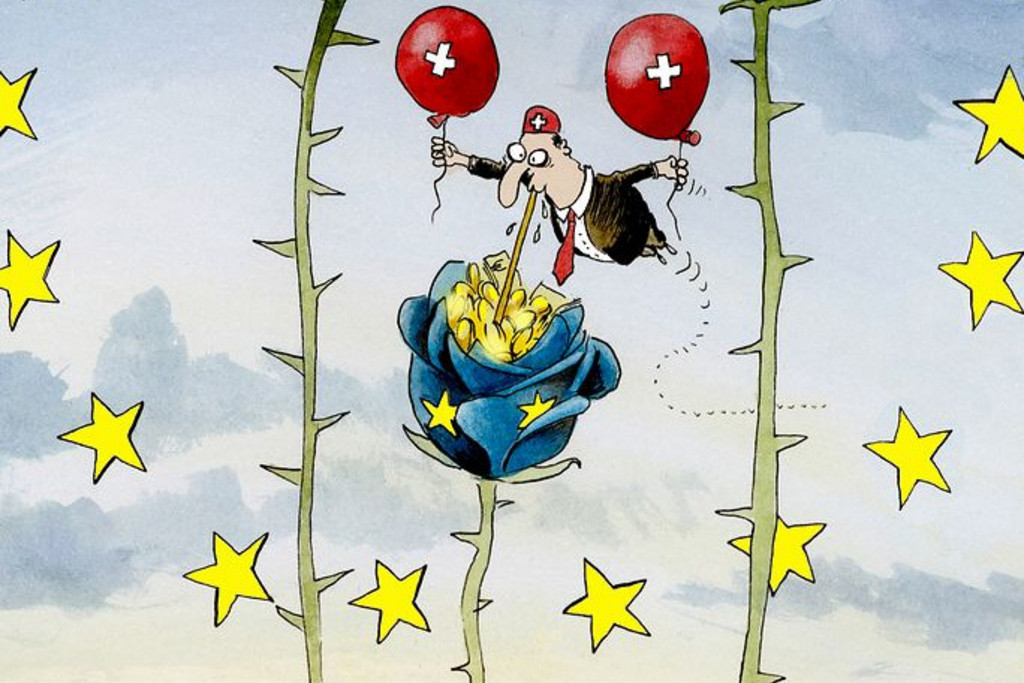The Swiss experience a new way of life
22.07.2020 – Stéphane Herzog
Our homes became the centre point of our lives. Our normal social and consumer habits were turned upside down. But the Swiss lockdown experience varied greatly depending on people’s social situation.
COVID-19 and lockdown: a profound impact on the population
Inside: safety. Outside: the virus. This is how the lockdown period was presented, beginning on 16 March and with restrictions relaxing significantly from 11 May, when the schools reopened. Overnight, the Swiss population had to adopt a whole new way of life: gauging social distances, disinfecting hands, wearing a mask, and having work meetings online. “It took me a month to get used to a new rhythm at home,” recalls Marie Cénec, a church pastor from Geneva. “Habits are easy, but changing your behaviour is tiring,” says the minister, who has been supporting the members of her parish via the social network, WhatsApp, sharing poems, prayers and intercessions directly with those suffering.
A multi-speed lockdown
Fanny Parise, anthropologist and research associate at the Lemanic Institute for Practical Theology of the University of Lausanne, identified four groups within the population during lockdown. These archetypes are based on a study which started in March, involving 6,000 people divided equally between Switzerland and France. This unprecedented study shows that 46% of participants considered the lockdown period to be a beneficial experience. These people were able to work from home or were working short-time hours with their income guaranteed. In contrast, 12% of participants declared that they had experienced an increase in their mental stress levels and a degradation of their living situation. Worse off still were the 34 % of participants who lost their jobs or whose businesses had to close.
Parise compares the lockdown to a rite of passage and remarks that the perceived usefulness of social functions was inversed. “The enemy was faceless, and the heroes were, too: it was certain professions that took on this latter role. Cashiers became society’s linchpins and medical staff our saviours. Other professions, which are usually in the spotlight, saw their importance drop, notably in the commercial sector, where normally stressed individuals suddenly found themselves with time on their hands.”
“I was shocked by the difference in people’s situations,” agrees Cénec. “Depending on their age, location, and social and family situations, people have not had the same lockdown experience at all.”
Stress or contemplation
Those who were not subjected to high levels of professional or family-based stress saw their days grow longer. They discovered idleness and meditation. “Staring at the ceiling or out of the window has been mentioned positively, whereas before it was considered as laziness,” says Parise. This group used its time to exercise, engage in DIY projects or cook. “With regard to food or alcohol consumption, people either indulged themselves or were very self-disciplined,” notes the researcher. This latter attitude may have been a reaction to the excesses of the world as it was.
“People of faith found that they were equipped to deal with anxiety, solitude and privation,” says the Genevan pastor. In the anthropological study, 46 % of participants considered that the epidemic constituted the first sign of the collapse of the world. A further 51 % indicated that they had looked for explanations other than those presented in the media. “Each citizen became a coronavirus expert, all the more so given that even governments themselves were learning about the pandemic from day to day,” comments the French researcher. People of faith were able to fit this event into a pre-structured logic, “where the challenge is to overcome hardships, whilst knowing that we can hope to transform difficulties into opportunities for personal growth”, said Cénec. Some blamed the 5G network for the start of the pandemic in Wuhan. Others saw a worldwide conspiracy. For many, this pandemic was the result of harm done to the planet. “The story of the bat in the market in Wuhan which contaminated a human is very visual: it’s like a fable,” says Parise.
Disoriented consumption
At the height of the lockdown, Swiss households increased their food purchases (+ 18.6 %) as well as their consumption of services related to media and communication (+ 71.2 %) and spending in supermarkets (+ 36.7 %). In contrast, the Swiss halved their spending on clothing and reduced their spending on petrol by 22 %. Spending in restaurants dropped by 53.8 % and hairdressers saw a dramatic drop in activity (- 80.8 %). Cited by the “Neue Zürcher Zeitung” (NZZ), these figures come from Postfinance, which analysed its 2.7 million clients’ purchases between mid-March and mid-April. Online business boomed. In April, Swiss Post told the newspaper “Le Temps” that it was handling almost 850,000 parcels per day, indicating a 40 % increase compared to the same period last year. Digitec Galaxus, managed by Migros, indicated that sales of fitness equipment and board games had almost quadrupled, while sales of erotic goods had doubled.






![[Translate to English:]](/fileadmin/_processed_/3/7/csm_max-spring-3-cartoons-de_3c29839370.png)







Comments